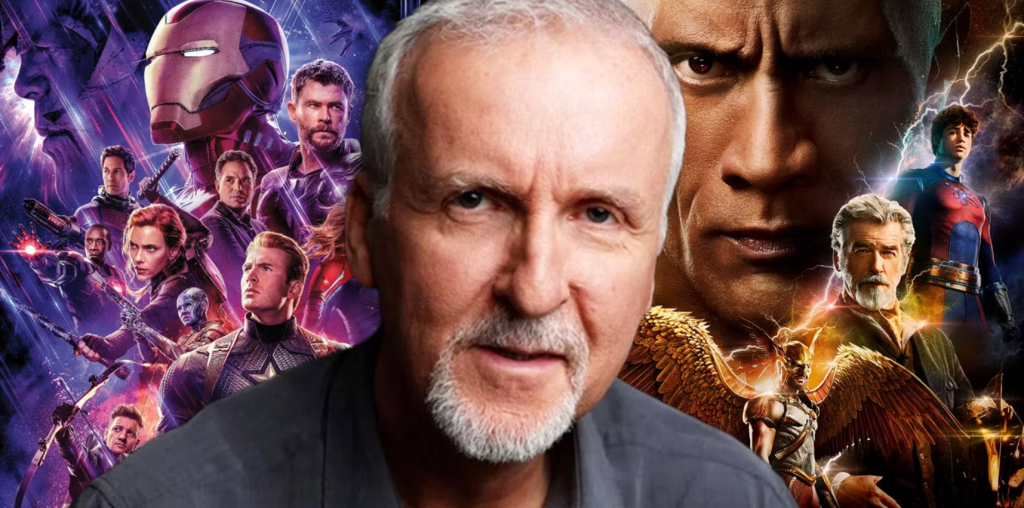James Cameron Joins the Ranks: Critiquing the Rise of Superhero Movies
Renowned filmmaker James Cameron has become the latest prominent figure to voice his concerns about the increasing prevalence of superhero movies in the realm of cinema.
Over the past 15 years, Marvel and DC films have held sway over the global box office, making a significant impact on the film industry. Four entries from the Marvel Cinematic Universe—namely Avengers: Endgame, Avengers: Infinity War, Marvel’s Avengers, and Spider-Man: No Way Home—secure their spots among the top 10 highest-grossing films of all time.
Interestingly, Cameron himself boasts three titles on this elite list: Titanic, Avatar, and Avatar: The Way of Water. Notably, the first installment of the Avatar series currently holds the esteemed position of being the highest-grossing film of all time.
Nonetheless, it appears that Cameron is not entirely enthralled by the competitive landscape that has developed within the box office.
In a candid interview with the New York Times, he shared, “When I observe these grandiose cinematic spectacles—directed at you, Marvel and DC—it’s apparent that regardless of the characters’ ages, they all behave as though they’re still in their college years.”
Cameron elaborated on his viewpoint, remarking, “While they may share connections, these characters lack genuine depth in their relationships. They never truly retire from their heroic roles due to family commitments. The very elements that anchor us and provide us with purpose, love, and meaning? These essential facets seem absent from these characters’ experiences, and in my view, this approach doesn’t align with the essence of effective filmmaking.”
Cameron’s perspective echoes sentiments expressed by other notable directors in recent years, including Martin Scorsese and Francis Ford Coppola, who have both raised criticisms against the superhero genre.

Scorsese’s Analogy: Superhero Films as Theme Park Adventures
Martin Scorsese notably likened superhero movies to immersive theme park rides in his past remarks on the subject.
In a piece he authored for the New York Times, Scorsese addressed the topic: “I was posed a question about Marvel films, and I responded sincerely. I noted that I’ve attempted to engage with a few of these movies, and while they possess qualities that appeal to some, they don’t resonate with me personally. To my perception, they appear to align more closely with theme park experiences rather than adhering to the cinematic qualities I’ve cherished and appreciated throughout my life. Ultimately, I hesitate to classify them as true cinema.”
Scorsese further acknowledged that certain individuals may interpret his statements as derogatory or indicative of animosity towards Marvel. However, he emphasized that he cannot control others’ interpretations of his words.
In conclusion, the critiques offered by accomplished directors like James Cameron, Martin Scorsese, and Francis Ford Coppola highlight the ongoing discourse surrounding the artistic and narrative direction of superhero movies. As these perspectives intersect and contribute to a broader conversation within the industry, the debate over the role and impact of these films continues to evolve.




